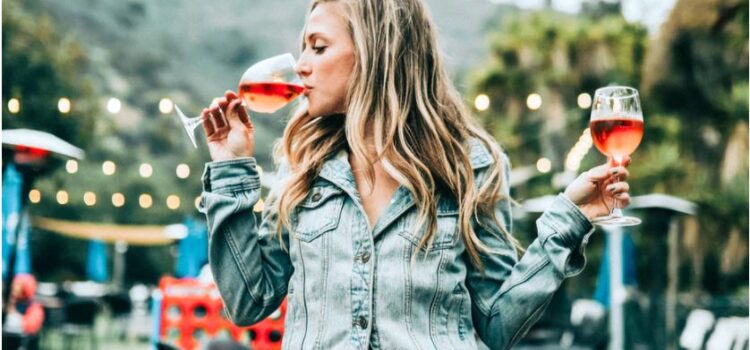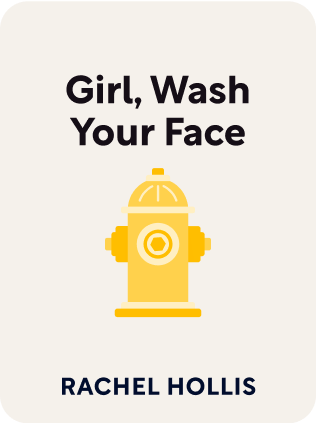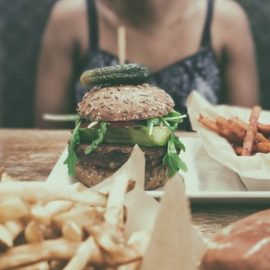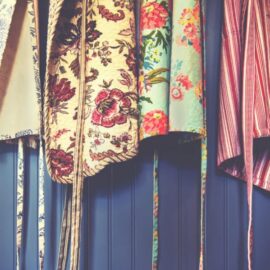

This article is an excerpt from the Shortform book guide to "Girl, Wash Your Face" by Rachel Hollis. Shortform has the world's best summaries and analyses of books you should be reading.
Like this article? Sign up for a free trial here .
Do you use alcohol as a coping mechanism instead of learning to manage stress? Are you concerned that wanting a drink is slowly turning into needing a drink?
Drinking may seem like an easy fix, just a few sips can dull the edges of anxiety and frustration. But using alcohol as a coping mechanism comes with many more downsides than positive ones.
Continue reading to learn why using alcohol as a coping mechanism is dangerous.
Using Alcohol as a Coping Mechanism Is Dangerous
Many women use alcohol as a coping mechanism for the big and small challenges of life instead of learning to manage stress. Drinking is an easy fix — just a few sips can dull the edges of anxiety and frustration.
Many women struggle with how much they drink, fearing that it’s turning into a real problem as they gain weight, spend more money, and feel less in control. But women struggling with alcohol are not alone; it’s a common challenge that can be worked through.
The Spiral Into “Needing” Alcohol
Through teenage years and young adulthood, alcohol wasn’t on Rachel Hollis’s radar. Then she had kids. Parenthood can lead to being exhausted, overwhelmed and on edge, and alcohol smooths these feelings. In the movie Cat on a Hot Tin Roof, Big Daddy, played by Burl Ives, talks about a “click” that happens when he drinks enough. She grew to relate to this click — it’s the moment when the wine kicked in and she felt herself relax.
Her wine consumption steadily grew from a glass a night to a heavy 7-day-a-week habit. She would wake up hungover, but blame hormones or exhaustion. She began pounding cocktails at social gatherings to relax — alcohol gave her the courage to parent, have conversations with strangers, and feel sexy, washing away anxiety, fear and frustration.
But she checked herself when she caught herself saying, “I need a drink.” The idea of “need” terrified her because she had alcoholics in her family and didn’t want to become one. She gave up alcohol for a month and felt more in control, confident she didn’t “need a drink” and wasn’t automatically turning to alcohol as a coping mechanism.
Then she had foster kids, and her stress level shot through the roof. Though they welcomed the new children, daily life was chaotic and they existed in survival mode. The children’s special issues added to the stress, as did dealing with troubled biological parents and navigating the hurdles of the foster system. She turned to vodka, because wine couldn’t touch her new levels of exhaustion, fear and overwhelm.
She realized that drinking the way she was drinking was a form of medication, putting something in her body to make her feel better. But when the alcohol wore off, her problems were still there. Drinking is an attempt to escape, but you can’t escape the realities of life for long. And when the alcohol wears off, you are less equipped to deal with life’s realities because you’re sicker. Using alcohol as a coping mechanism actually makes you weaker.
Learning to Manage Stress
Hollis realized that the only true way to manage the stress of life wasn’t through alcohol, but through building up the skills necessary to cope with stress.
She likens the ability to cope with stress to your body’s immune system. A child’s immune system must be tested to build up the strength to fight illnesses. The body is then able to fight off that illness, and similar illnesses, because it’s been through the battle before.
Alcohol is like antibiotics; if you take too many antibiotics, your body doesn’t learn to fight off anything on its own. Similarly, if you use alcohol as a coping mechanism to mute you feelings, you don’t learn the coping skills to deal with future problems. Fighting through hard times is how you get tougher.
Think of the strongest people you know. They’ve likely been through tough times, built the emotional skills to deal with life, and come out stronger. They don’t medicate because they’re strong enough to handle things on their own.
Hollis had to learn better ways to cope with stress and difficult times instead of reaching for alcohol. She substituted running, dinner with friends, praying, therapy, and letting herself cry.
These types of habits helped her build up strength to handle the hard stuff so she doesn’t reach for alcohol — the easy way out.
If alcohol isn’t your thing don’t think you’re immune to having a crutch to deal with life — prescription pills, food, pornography, or even binge-watching TV excessively are ways to escape the hard parts of life.
Tips on Saying No to Alcohol as a Coping Mechanism
Try these strategies if you’re trying to get a handle on your drinking:
- Examine your habits. Drinking alcohol in response to stress can become a habit. When you realize this, you can replace that habit with a positive coping mechanism, such as running or time with friends.
- Self-awareness. You can’t move past a problem with alcohol if you can’t admit to having it. Force yourself to acknowledge what’s really going on so you can change it.
- Throw out the crutch. Remove access to alcohol if you’re concerned about drinking too much. It’s easier to fall into temptation if it’s sitting right there.

———End of Preview———
Like what you just read? Read the rest of the world's best book summary and analysis of Rachel Hollis's "Girl, Wash Your Face" at Shortform .
Here's what you'll find in our full Girl, Wash Your Face summary :
- Why you should accept that life can be messy
- How seeing that you're in control of your life can help you live more joyfully
- The 20 lies you might be telling yourself






